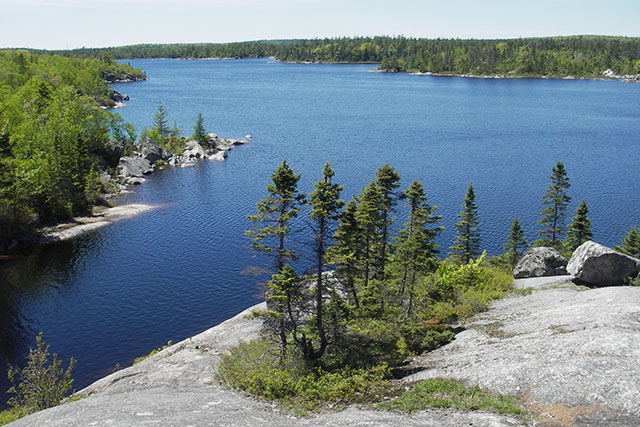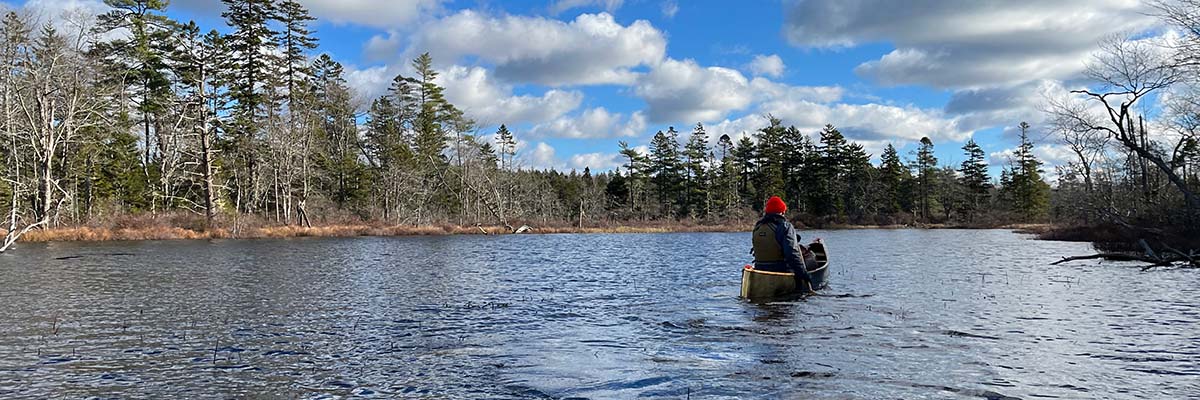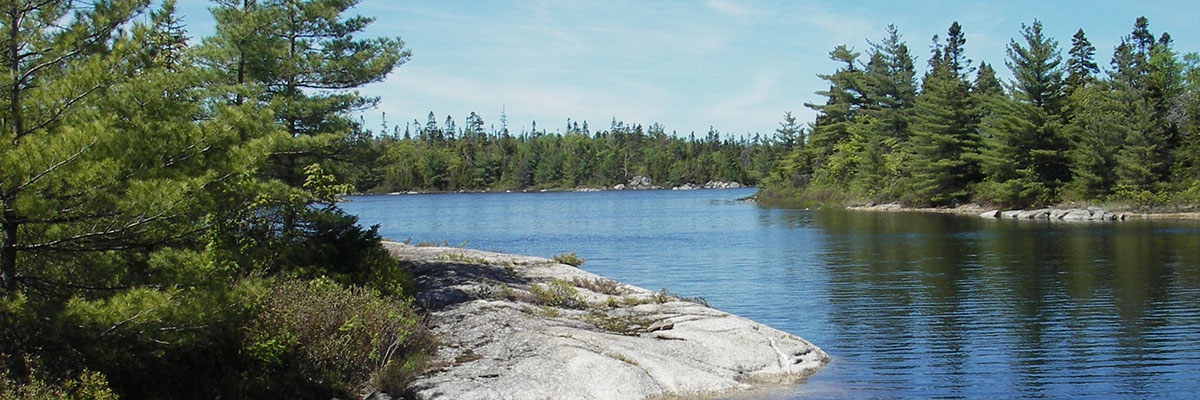
Supporting ecological connectivity in urban areas: Blue Mountain-Birch Cove Lakes
Parks Canada's report on conservation from 2018 to 2023
- Conservation priority
- Establishment of protected areas
- Location
- Halifax, Nova Scotia
The Blue Mountain-Birch Cove Lakes region is a candidate site for the designation of a national urban park on the western edge of the Halifax urban core.

The view from Susies Lake Lookoff in the Blue Mountain-Birch Cove Lakes Provincial Wilderness Area. The candidate national urban park in Halifax includes 2,304 hectares centered around this area, along with lands cared for by the Halifax Regional Municipality and the Nova Scotia Nature Trust. Photo: Nova Scotia Department of Environment and Climate Change
Context

The Halifax candidate national urban park is currently centered around the Blue Mountain-Birch Cove Lakes Provincial Wilderness Area along with lands held by the Halifax Regional Municipality and the Nova Scotia Nature Trust. The area features a mix of protected woodlands, barrens, lakes, and wetlands and provides ample opportunities for residents and visitors to engage in hiking, birdwatching, and other outdoor recreational activities. This urban escape also provides a refuge for wildlife amid an expanding and ecologically fragmented suburban and urban landscape. Within the region, 23 species at risk and 61 species of conservation concern have been identified.
The function of national urban parks

National urban parks contribute to local, national, and global efforts to halt and reverse the loss of biodiversity. This is partly achieved by improving connectivity between natural and protected areas. This ecosystem connectivity allows species to move, and natural processes to flow freely, across large landscapes. National urban parks are a form of landscape-scale conservation that also recognizes multiple and interacting land-uses and connects people with nature.
Working together
Key partners working with Parks Canada to explore the feasibility of a national urban park in the Blue Mountain-Birch Cove Lakes region are the Halifax Regional Municipality, the province of Nova Scotia, Kwilmu’kw Maw-klusuaqn and Sipekne’katik First Nations, and the Nova Scotia Nature Trust. Among other objectives, project partners are working to ensure that the potential Halifax national urban park provides space for Indigenous stewardship, promotes Indigenous voices and stories, and offers opportunities for connections to lands and waters based on Indigenous knowledge and values.
A network of national urban parks
Beyond Halifax, Parks Canada is collaborating with partners across the country, including Indigenous Peoples, to create a network of national urban parks in Canada’s large urban centers. National urban parks hold tremendous potential to conserve and restore nature in cities, help protect cities from the impacts of climate change like floods and heat waves, improve access to nature for people living in cities, protect and promote local cultural heritage, and advance reconciliation with Indigenous Peoples.


“The Nova Scotia Nature Trust is proud to be part of protecting such an ecologically important and treasured urban wilderness. This ground-breaking initiative will be Canada's first national urban park to include a non-government land trust as a landowner and partner. Strengthened by the involvement of all three levels of government, the Mi'kmaq, and the stakeholders and Friends of Blue Mountain-Birch Cove Lakes, our cooperative progress is creating an exciting model for other jurisdictions to follow.”—Bonnie Sutherland, Executive Director, Nova Scotia Nature Trust
Learn more
- Date modified :